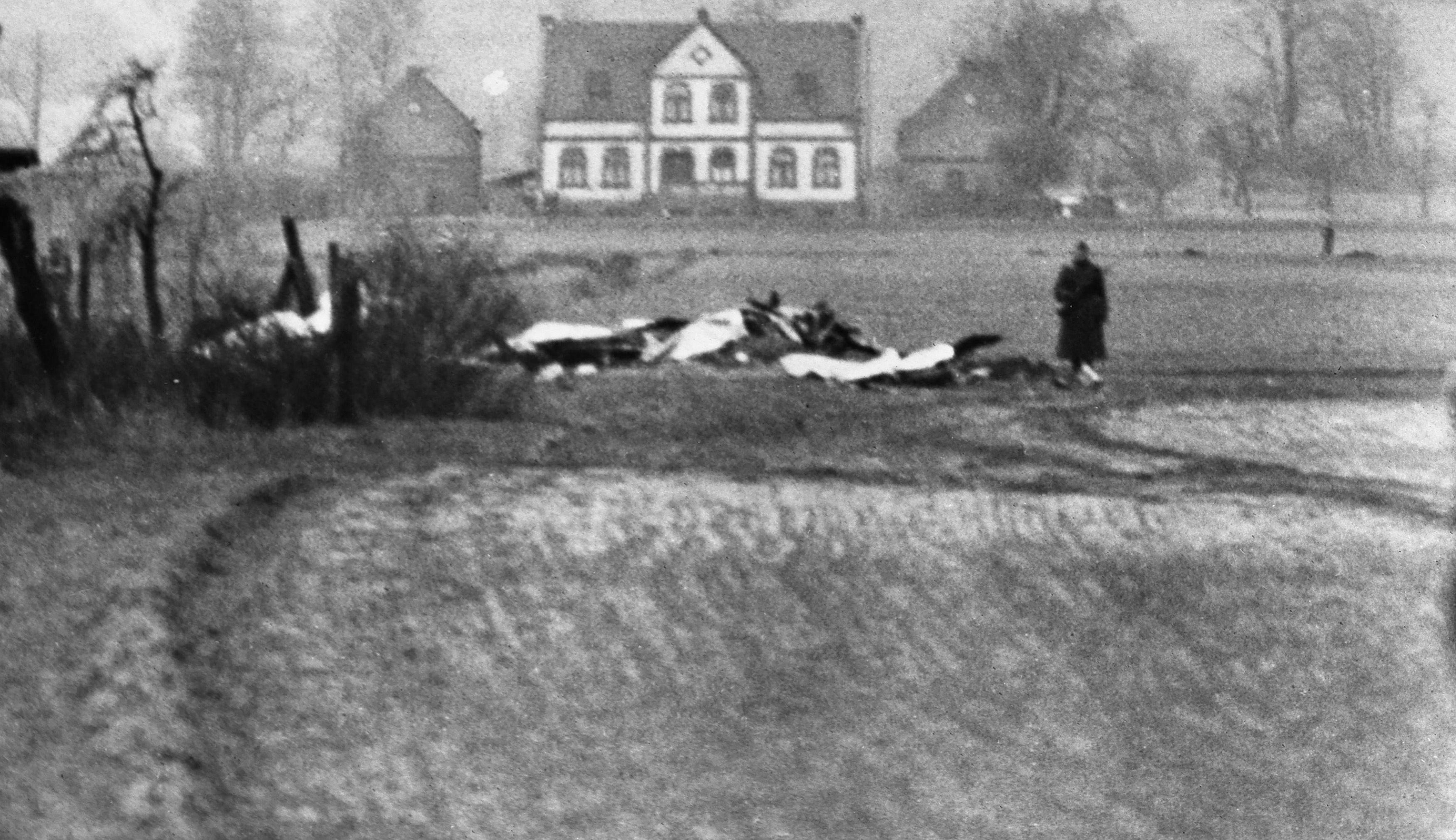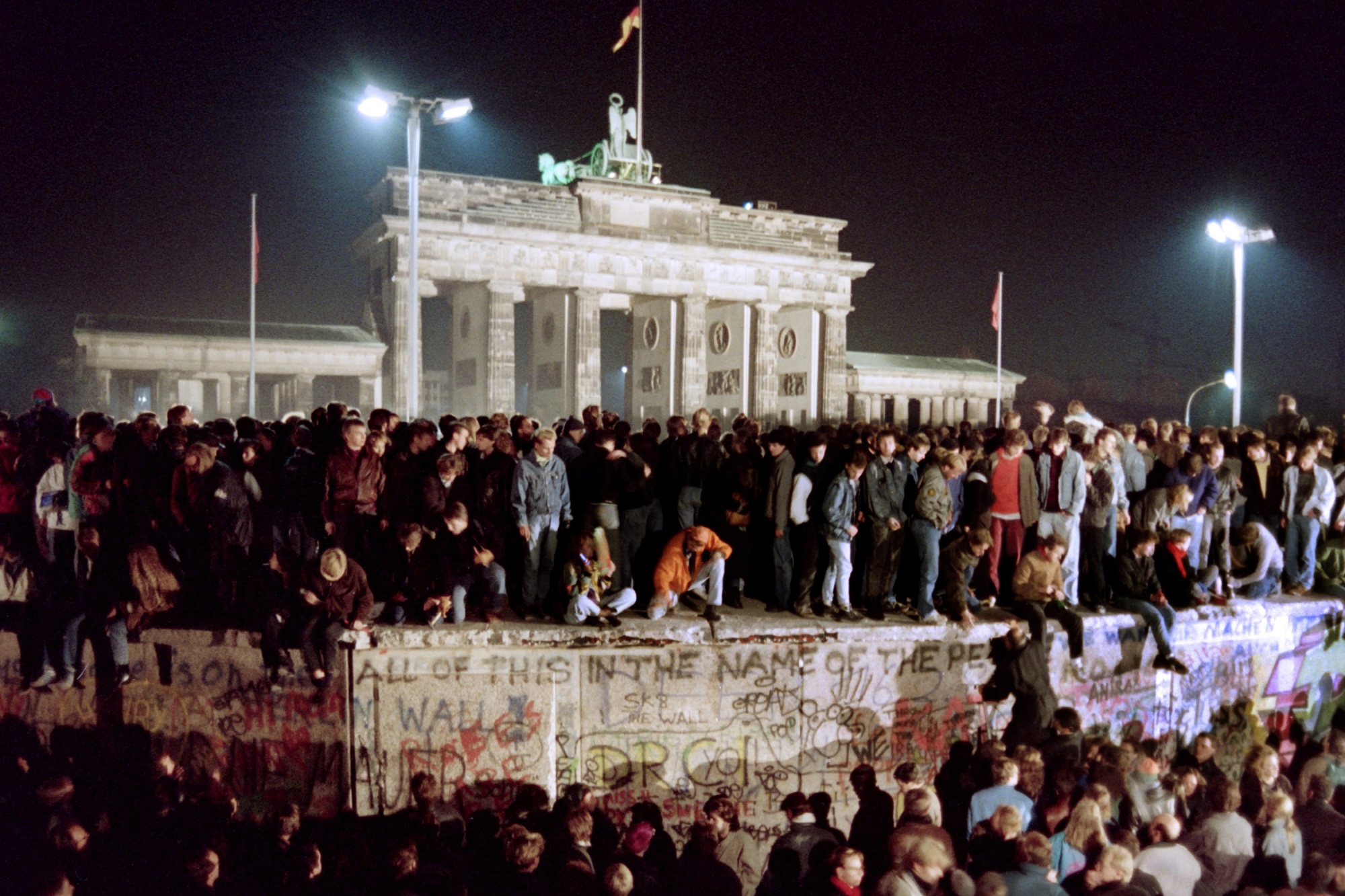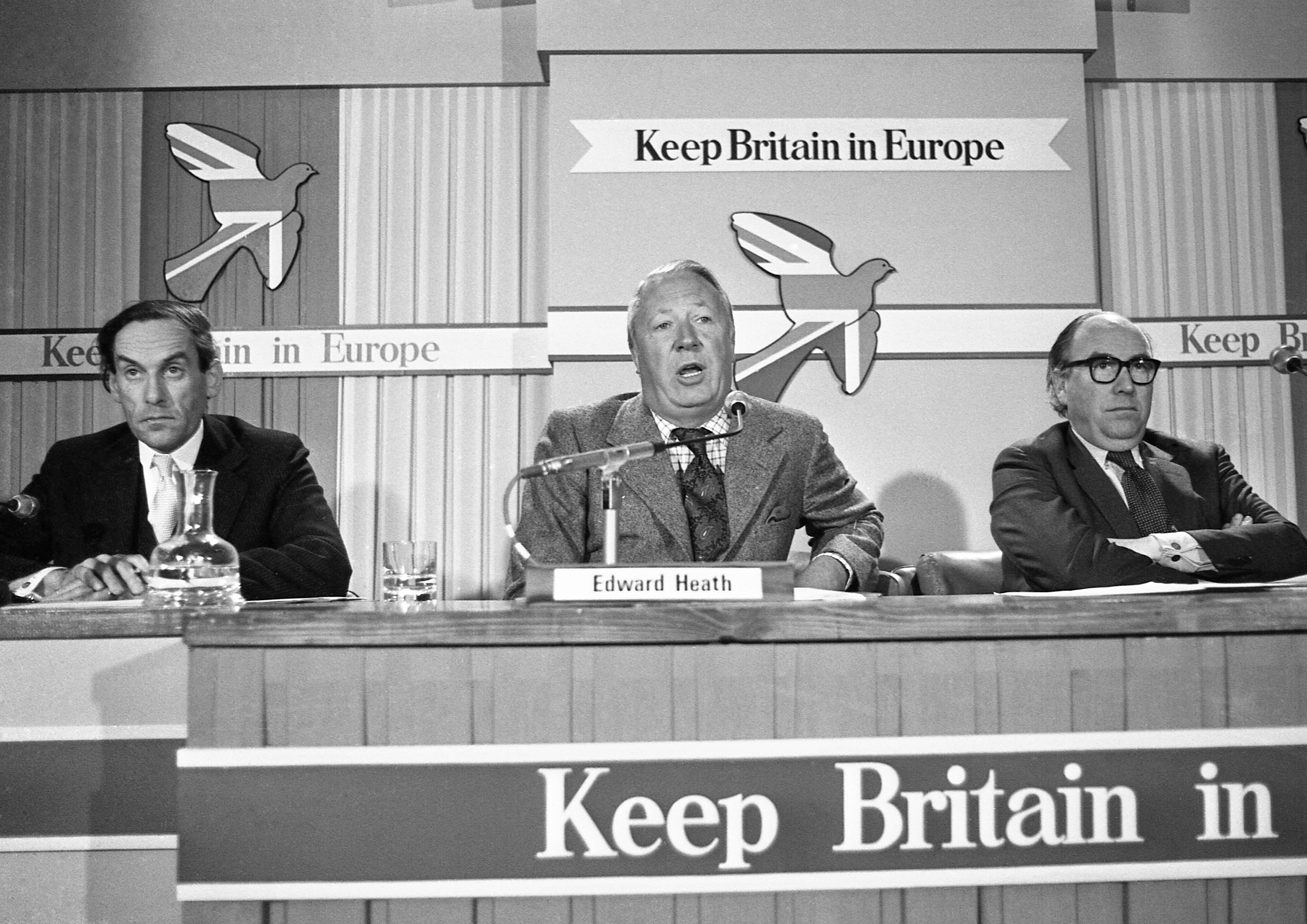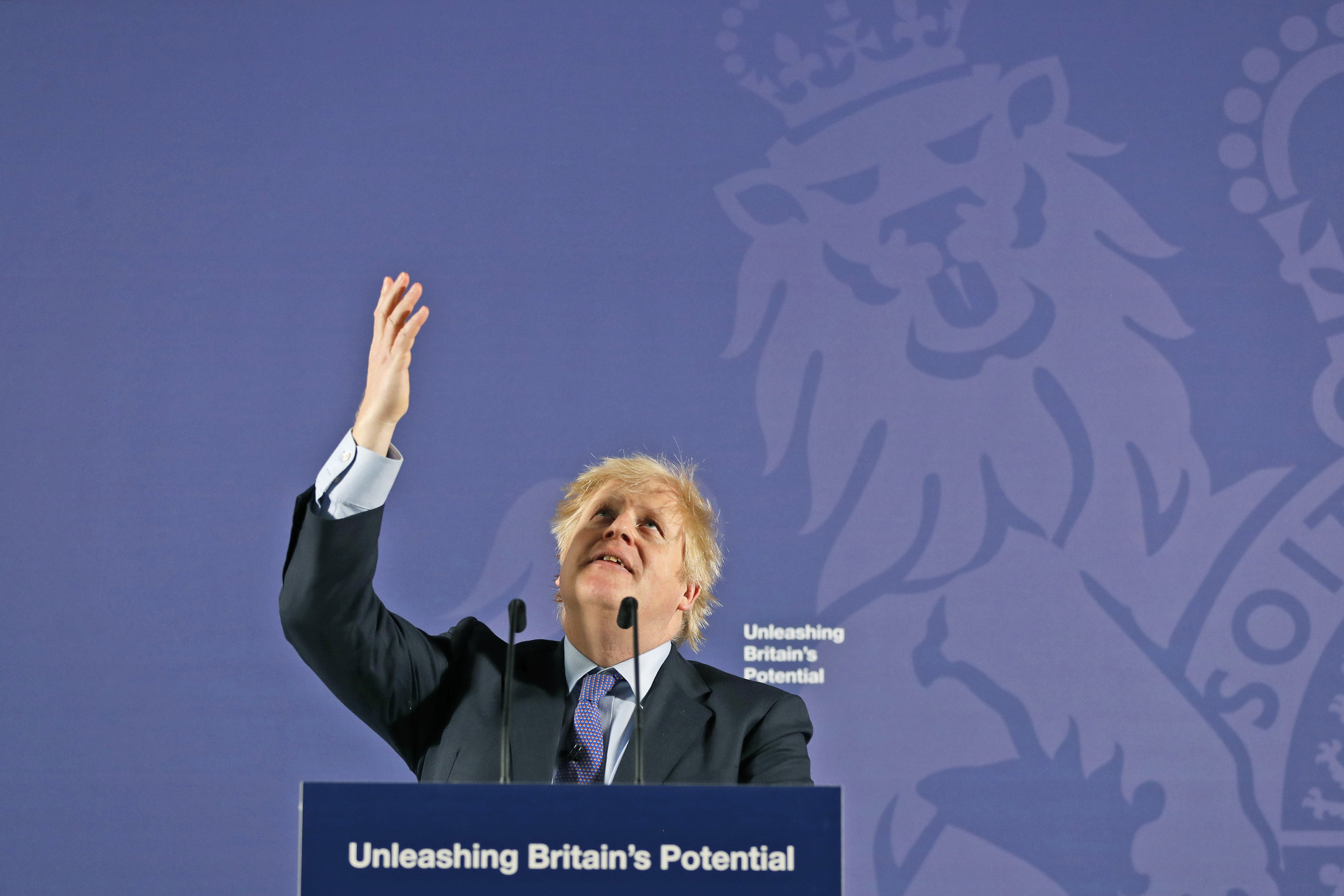White Cliffs of Dover on the UK coast
Photographer: Jason Alden / Bloomberg
Photographer: Jason Alden / Bloomberg
It’s easy to overlook the 1948 Gato Air Disaster Memorial in a city that has more than its fair share of 20th-century ghosts. A simple painting in Berlin’s Westend district commemorates the mid-air plane crash that killed 15 people during the early days of the Cold War.
The inscription on the stone may be unclear, but its location in St.George’s Anglican Church reflects a long-standing British presence in the German capital, and the events that mark it are a window into the pivotal role of the United Kingdom in shaping the postwar European order.
With Britain’s exit from the European Union Now real, The United Kingdom may discover that it is not easy to shake off a European identity rooted in history and geography. Indeed, it appears that this reality – and a political culture always dumped with questions about the relationship with its European neighbors – is destined to tie Britain to the continent for years to come, for all the government’s efforts to rename the nation as the world champion of international free trade.

Remains of the Soviet Yak plane that collided with the Vickers plane near Berlin’s Gato Airport on April 5, 1948.
Photographer: Henry Burrows / AP Photo
After striking a trade deal with the European Union on Christmas Eve, Prime Minister Boris Johnson said it was time to move forward. The UK should leave “the old, dry, tired and compressed arguments behind” and “preserve Brexit,” he told the House of Commons on December 30 as he pushed the deal into law.
Given Britain’s post-war history, this end may be wishful thinking. In fact, the pro-Brexit camp has been guilty of underestimating the European dimension of the country’s past, according to Helen von Bismarck, Historian of Britain’s role in international relations in the twentieth century.
She said it provides a “very selective view of British history”. “That whole idea that we are now free to go back to where we really are – history doesn’t really prove that.”
Britain’s role in post-war Germany gives a sense of the extent of those continental ties. Berlin in 1948 was a city on the brink of a precipice when, in April, a Vickers plane from London via Hamburg collided with a Soviet Yak fighter as it approached the British RAF Gato airfield, killing 14 passengers and crew in addition to the pilot. Soviet. Each side blamed the other for an international incident that contributed to the rapid deterioration of relations between East and West.
Within two months, London was the place to announce Allied plans to create a state in West Germany, angering Soviet leader Joseph Stalin, who ordered Berlin to be cut off from the rest of Germany. It was the British Foreign Secretary, Ernest Bevin, who persuaded the Americans to take the lead in airlifting supplies and breaking the blockade, says the historian. Tony Judt He wrote in his 2005 book, After the War. The continent would be divided until the fall of the Berlin Wall in 1989.

The continent was divided until the fall of the Berlin Wall in 1989.
Photographer: Gerard Malle / AFP / Getty Images
Washington and Moscow may have been the main actors in the Cold War, but Britain was at the center of the events that shaped the new European reality – even if it wasn’t until the 1970s that the UK had tied its fate to that of the continent. Join the pioneer of the political project set for the region, the European Union.
In February last year, days after the UK performed the results of the 2016 referendum and formally leaving the European Union, Johnson used a speech about Britain’s future after Brexit To say that the UK has “made a comeback after decades of hibernation” and is ready to resume its historic role as the leading global advocate of free trade.
Recent research by the European Council on Foreign Relations indicates that the UK will not be able to drive Europe out so easily. A study by the Research Center found that the majority of UK policy experts from government, think tanks, academia and the private sector see the country’s future role in global politics as closely related to the European Union. The leadership of the “resurrected Commonwealth” of nations was seen as the least realistic outcome, favored by less than 2% of those surveyed.
While the Brexit deal Sealed December 24th The study determines the extent of future relationships, and the study shows that there is room for a return to closer cooperation – particularly in areas including climate change, migration between the European Union and the United Kingdom and foreign policy – if London so chooses.
Better not leave it too late. Parallel study Ireland is found to be the only country out of 27 member states of the European Union that considers UK relations a top priority. Overall, the UK ranked the least priority for bloc members from China, Russia, or the United States – or even the western Balkans.
“There is a certain stress and I think this has an effect on willingness to engage,” he said. Jana Boglerin, Head of ECFR Berlin Office and Research Project Director. “Those countries that were traditionally close to the United Kingdom have moved.”
This is unlikely to be a luxury afforded to the United Kingdom, which has been shocked by questions of European integration since the war. Since 1950, when European Coal and Steel Community plans were introduced, Britain has refused to participate due to suspected continental influence in its affairs.
It was also an economic decision: in 1947, the British economy looked much better than its neighbors, aided by trade with the Empire. But by the end of 1951, West German exports were fueling the “European economic renaissance,” writes historian Gawdt.

Edward Heath, center, at a press conference entitled “Save Britain in Europe” in London, on May 13, 1975.
Source: AP Photos
By 1955, Britain had signed an association agreement, and in 1961 it applied to become a full member of what was then known as the European Economic Community – which French President Charles de Gaulle objected to implementing.
The United Kingdom under the Conservative government headed by Edward Heath was finally admitted to the European Economic Community on January 1, 1973. But what followed was the 47 years of intermittent wrangling that ultimately led to the UK’s exit from the European Union on January 31.
The accession was soon followed by a membership referendum called by the Labor government, riven by an internal party struggle over Europe. In the 1980s, conservatives under Margaret Thatcher turned into increasingly European suspicions and Europe played a key role in its downfall in 1990. Her successor, John Major, fought for control of his government on the issue throughout his tenure at 10 Downing Street.
Prime Minister David Cameron sought to avoid the boil over by awarding another referendum on EU membership. The vote to leave cost him his job and that of his successor Theresa May.
Johnson said in February that all of this controversy is “going back in the past behind us.” He said, “We have the opportunity, we have the newly restored powers, and we know where we want to go, and this is in the world.” His goal is to create a “global Britain”.

Boris Johnson sets out his government’s negotiating position with the European Union after Brexit on February 3.
Photographer: Frank Augustin – WPA Pool / Getty Images
The UK’s dilemma is that it risks being on the wrong side of history by walking alone at a time of great-power rivalry between the US and China that is unlikely to change under the Biden administration.
Turning its back on a half-century economic and political alliance with Europe appears increasingly precarious, especially with pro-Brexit President Donald Trump leaving the White House, Commonwealth countries Australia and India cooperating with Japan to better fend off the challenge from China.
Meanwhile, the European Union faces its own leadership challenges, according to Matthew Goodwin, professor of politics and international relations at the University of Kent in England. With the UK now privileged to strike trade deals with non-EU partners, the two sides will “increasingly move in different directions,” he told Bloomberg TV.
However, history indicates that these paths are destined to meet again. Even Johnson admits that the UK is a European power with “irreversible facts in history, geography, language, culture, instinct and feelings”, and not just “by treaty or law”.
In 1948, the Labor government headed by Prime Minister Clement Attlee faced a landmark decision regarding the country’s future relations with the continent, and chose to sever previous British thought in favor of an alliance with Europe.
Once again, it was Bevin, his foreign minister, who committed the country to “engaging with its continental neighbors in a common defense strategy, a” Western European Union, “on the grounds that Britain’s security needs were no longer separable from those of the continent, Jawdat wrote.
This union became the North Atlantic Treaty Organization, signed in April 1949 by the United States, Canada and ten European countries, and it remains the cornerstone of transatlantic relations today.
The following year, he laid the foundation stone for Saint George’s Church It was placed in the British sector of Berlin, replacing the old English church destroyed in a wartime bombing raid. The Gato Victims Painting was added later.
For Boglerin at the European Council on Foreign Relations, policy areas of mutual interest hold promises of future cooperation between the United Kingdom and the European Union, despite the current British government’s desire to hold back. “We haven’t lost everything,” she said.

‘Voorstander van internet. Student. Kwaadaardige twitteraar. Expert in amateur-tv. Hipster-vriendelijke maker.’